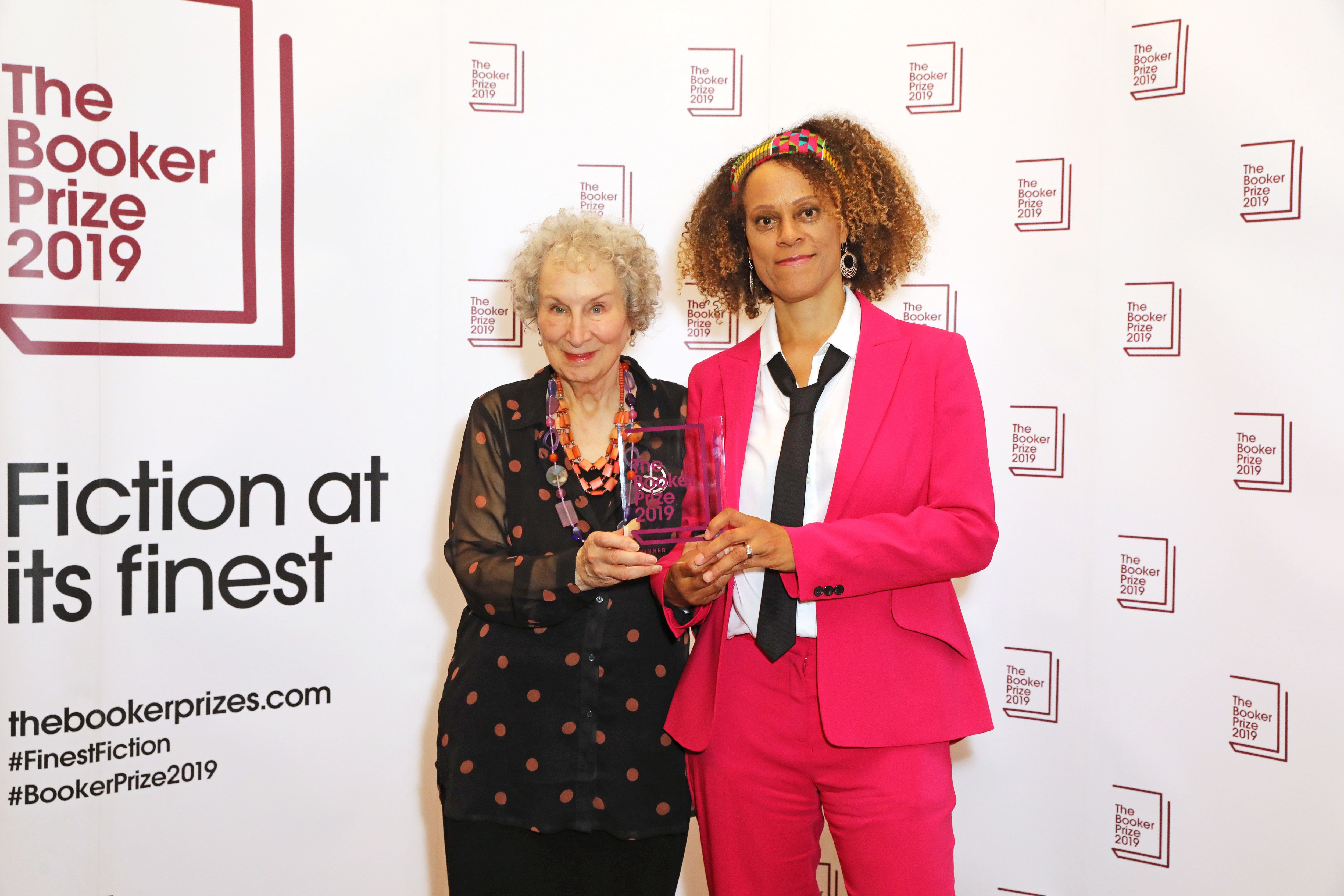British-Nigerian Writer Bernardine Evaristo Wins Joint Booker Prize With Margaret Atwood
Evaristo is the first black woman to win the prize, but not everyone is pleased that she had to split the award.
History was made yesterday as the Booker Prize was awarded to British-Nigerian author Bernardine Evaristo for her novel "Girl, Woman, Other," beating out four others including fellow Nigerian Chigozie Obioma. It marked the first time the prestigious literary award was given to a black woman and only the second time it has been given to a Nigerian (Ben Okri in 1995 for "The Famished Road"). In another historical twist for the event, Evaristo shared the award with famous Canadian author Margaret Atwood for her novel "The Testaments," the long awaited sequel to fan-favorite "The Handmaid's Tale." This is the third time the award has been split in its 50 year history and Brittle Paper reports that the judges described the decision as "explicitly flouting" the rules.
For Evaristo, who is also a professor of creative writing at Brunel University, this was her eighth book and the first time she was ever seriously considered for the award. Her novel is a work of experimental fiction that follows 12 characters, mostly black women, as they navigate modern day England. Elle magazine described the work as "a choral love song to black womanhood in modern Great Britain."
Thanks to her illuminating views, clever word use and unrelenting championing of black women, black voices and black lives—Evaristo has been able to solidify the lives of black women in a well respected literary vault.
While Evaristo's win is undoubtedly impressive and laudable, the fact that it's the first win by a black woman in the prize's 50 year history, as well as the decision to split the first black woman's award is causing a bit of a stir from observers on social media.
When asked if she would rather not have split the award, Evaristo replied "What do you think? Yes, but I'm happy to share it. That's the kind of person I am."
Evaristo penned a reflection on race and representation for The Guardian just one week before the prize. "What, then, does it mean to not see yourself reflected in your nation's stories? This has been the ongoing debate of my professional career as a writer stretching back nearly 40 years, and we black British women know, that if we don't write ourselves into literature, no one else will."
- British-Nigerian Writer Reni Eddo-Lodge Makes UK Literature History - OkayAfrica ›
- Irenosen Okojie Wins This Year's Prestigious AKO Caine Prize - OkayAfrica ›
- Tsitsi Dangarembga and Maaza Mengiste Make 2020 Booker Prize Longlist - OkayAfrica ›
- Tsitsi Dangarembga and Maaza Mengiste Make 2020 Booker Prize Longlist - OkayAfrica ›
- Nigerian-American Author Tomi Adeyemi Makes Time’s 100 Most Influential People List - OkayAfrica ›
- Legendary Nigerian Poet and Writer John Pepper Clark Dies - OkayAfrica ›
- Bernardine Evaristo's Award-Winning Novel, 'Girl, Woman, Other,' Is Being Adapted Into a Film - OkayAfrica ›
- Yaa Gyasi Makes the 2021 Women's Prize Longlist - OkayAfrica ›
- Kenyan Author Ngũgĩ wa Thiong’o Nominated for 2021 Booker Prize - OkayAfrica ›
- Zimbabwe's Tsitsi Dangarembga Awarded PEN Pinter Prize - OkayAfrica ›
- Ayọ̀bámi Adébáyọ̀'s Novel, 'A Spell of Good Things,' Secures Spot on the Longlist for the 2023 Booker Prize - Okayplayer ›
